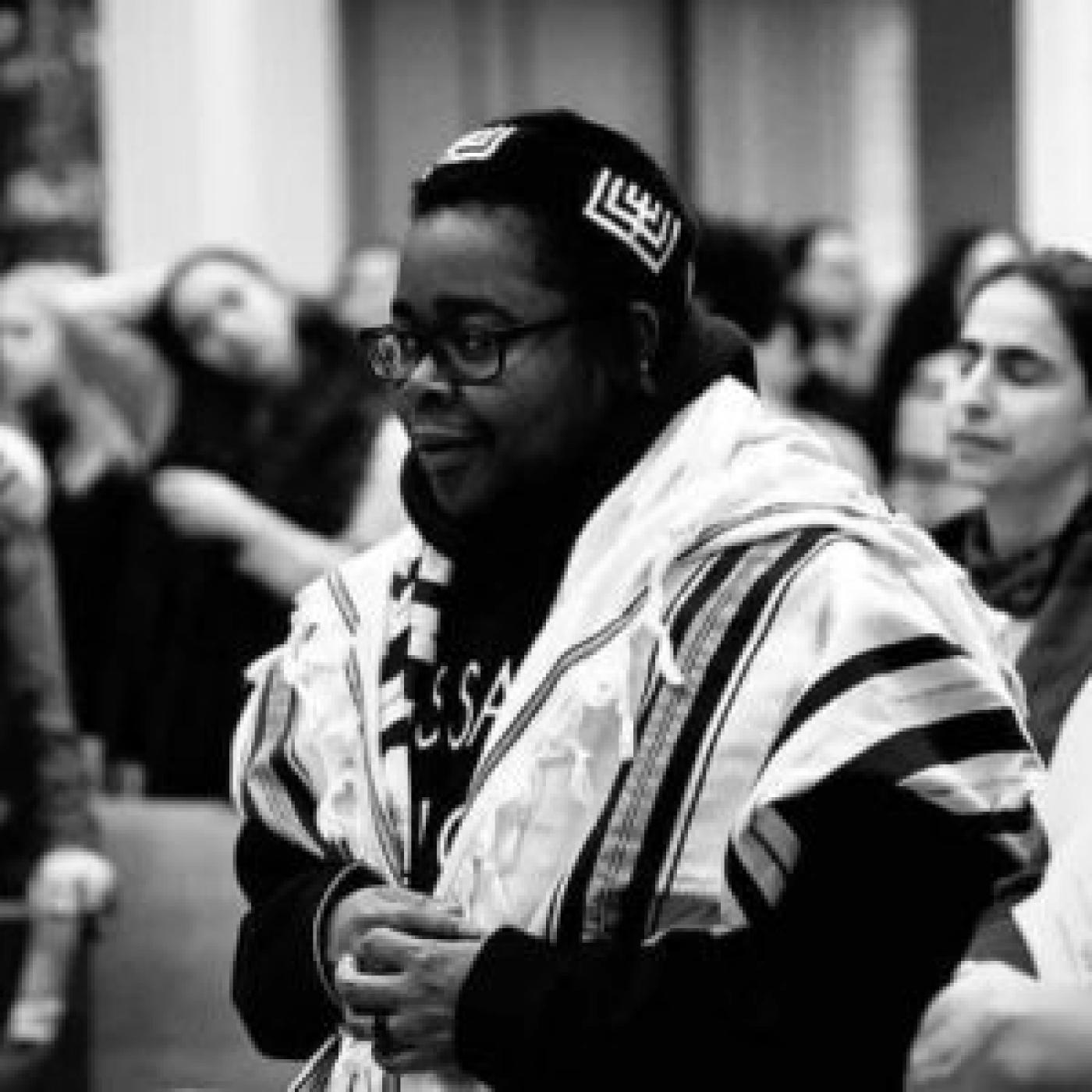By Eric Schucht; Photo: Rafael Shimunov
Originally published in the Jewish Exponent on May 11, 2020

Koach Baruch Frazier
For a time, Koach Baruch Frazier felt spiritual, but disconnected from religion. That all changed after taking a college course on world religions.
Coming out as trans and queer was one thing, but coming out as Jewish would be a different kind of experience.
Frazier, 42, grew up in an African Methodist Episcopal household in Kansas City, Missouri. He went on to earn his bachelor’s degree at Saint Louis University and a doctorate in audiology at Central Michigan University.
His career as an activist includes participating in the protests that sprung up around Ferguson, Missouri, after the fatal shooting of Michael Brown by a police officer in 2014.
Frazier moved to the Philadelphia area to enroll in Reconstructionist Rabbinical College in Wyncote, where he has been a student since fall 2018. He lives in West Philadelphia and is a member of Kol Tzedek.
Earlier this year, Frazier was named an LGBTQ Jewish Hero by Keshet, a national organization working toward the inclusion of LGBTQ Jews in Jewish life.
Why did you decide to go to rabbinical school?
So, I’ve been doing activism for a long time, but I was definitely activated during the Ferguson uprising. And I was one of the drummers who would go out with people to give cadence and music and rhythm and presence to the protest and the actions that were happening.
As a part of that, I was increasingly noticing my, like, push, call, however you want to say it, towards leadership in a more spiritual ground as opposed to showing up with my drum and understanding the workings of energy, particularly to sound, and just how influential and also transformative it was. And so that was part of the impetus of wanting to have a little firmer foundation for the work that I had already been doing.
What are your plans for after you’re ordained?
I haven’t decided yet, but I definitely want to continue to be with the people who, in my eyes, are neglected by spiritual caretakers — people of color, queer folks, people who are at the margins, disabled folks. How can I best support, particularly spiritually, the people who have for many years been neglected? So wherever that happens to be, that’s where I will be.
Have you experienced any problems as a trans person and a person of color from people in the Jewish community?
There are moments in which initially (people) seeing me as a trans person or a black person in Jewish spaces bumps up against their box of ideas and values that they either grew up with or have decided or claimed as theirs. And, generally, some people can let those barriers of their boxes down, which is beautiful to see. Not everybody can do that.
What is your hope for the future of the Jewish community?
I am looking forward to the day when the American Jewish community, recognizes, appreciates and uplifts the stories, culture and beauty of Jews all over. I realize that for such a long time, the Jews of America have been majority white Jews.
And as we notice that it’s not like that anymore, instead of us going back to this safety of lashing out and fear and feeling insecure in our own Jewishness and our own story, that we just learn to accept those who are here with us, that we appreciate all of the specialness and the beauty that Jews of all races and ethnicities have to offer.





